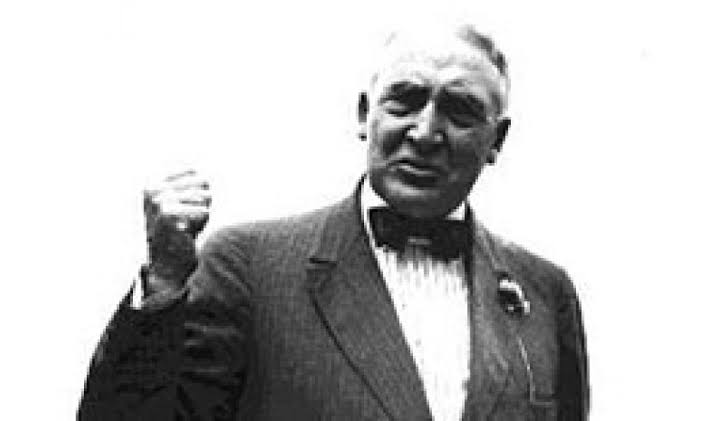Warren G Harding’s economic policies were emblematic of the predominant economic theory of the 1920s. According to conventional wisdom, the 1920s were a time of dramatically reduced levels of government activity, both domestically and internationally. Harding and Coolidge are typically said to have been strict supporters of laissez-faire economics and of nonintervention in foreign affairs. Again, however, liberal historians have overstated their case.
It is true that both domestically and internationally the 1920s represented a time of decreased government intervention when compared with the previous decade. But the previous decade, after all, included World War I. So although government spending and foreign involvement did indeed decrease in the 1920s when compared with the previous decade, they were both much higher than they had been before the war. This is what economic historian Robert Higgs has called the “ratchet effect”: although the government is inevitably scaled back in the aftermath of an emergency, it never reaches pre-emergency levels. Its scope, it’s spending, and its taxation is lower than during the emergency but higher than before the emergency.
Warren G Harding’s Economic Policy
During World War I, the top income tax rate had been increased from 7 percent to an incredible 73 percent. Andrew Mellon, secretary of the Treasury under both Harding and Coolidge, believed that such suffocating rates were damaging the economy. He also believed that such a high rate was actually yielding less revenue to the federal government than would a lower rate. (Mellon thereby anticipated the argument of economist Arthur Laffer and his “Laffer Curve,” which gained attention in the late 1970s.) The excessively high rates were causing the wealthy to shelter their incomes rather than expose themselves to such punishing taxation. If they invested their money and did well, the federal tax code allowed them to keep twenty-seven cents of every dollar earned, but if they invested their money and failed, they would lose 100 cents of every dollar. No thanks, said many Americans.
A great many wealthy Americans were putting their money into tax-free state and municipal bonds—not an extraordinarily lucrative avenue, of course, but they yielded at least some return, and they were not taxable. Meanwhile, businesses were starved for capital. Money that might have been devoted to business investment was tied up in state bonds. The states were awash with cash to fund various projects of dubious merit, but the private sector was in trouble.
Warren G Harding’s Economic Policy
Mellon, therefore, considered tax relief essential to the nation’s economic health. Under his influence, rates were reduced across the board, for all tax brackets, throughout the course of the decade. The top rate, since it was so high, saw the greatest absolute reduction, from 73 to 40 and later to 25 percent, but the greatest proportional reductions occurred in the lower income brackets, where people saw most of their income tax burden eliminated altogether.
As a result, not only did federal revenue actually increase—the unfortunate aspect of Mellon’s policy—but, much more important, economic activity multiplied many times over. These tax reductions undoubtedly played a role in bringing about the prosperity of the 1920s. In 1926, unemployment reached an incredible low of 1 percent.
America prospered during the 1920s. American business set production records. Wages increased and working hours declined. And as if to underscore yet again the irrelevance of labor unionism, these outcomes occurred at a time when labor union membership was undergoing a rapid decline.
Warren Harding had earned the Republican nomination in 1920 partly because he was utterly unlike Wilson. He had no grandiose plans to remake the world, and no particular desire to strengthen and enlarge the office of the presidency along Wilsonian lines. As Massachusetts Senator Henry Cabot Lodge explained, “Harding will not try to be an autocrat but will do his best to carry on the government in the old and accepted Constitutional ways.”
As for foreign affairs, Harding favored a modest and independent course: “Confident of our ability to work out our own destiny and jealously guarding our right to do so, we seek no part in directing the destinies of the Old World. We do not mean to be entangled. We will accept no responsibility except as our own judgment and conscience may determine.” Although certainly no genius, Harding was not the bumbling idiot that unsympathetic historians have made him out to be. His private papers reveal how well-read he was; his favorite writers included Carlyle, Dickens, Pope, and Shakespeare.
Cite This Article
"Warren G Harding’s Economic Policy" History on the Net© 2000-2024, Salem Media.
April 25, 2024 <https://www.historyonthenet.com/warren-g-harding-economic-policy>
More Citation Information.

